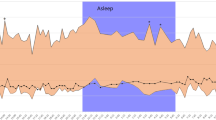Abstract
Introduction
Postprandial hypotension is a type of autonomic dysfunction where there is a decrease in systolic blood pressure of >20 mm HG within 2 h after eating thought to be due to poor cardiovascular compensation for splanchnic blood pooling that occurs with meals. This form of autonomic dysfunction is underdiagnosed in patients with spinal cord injury, likely in part because it can be asymptomatic.
Case presentation
26-year-old with complete cervical spinal cord injury (SCI) presented with neck pain described as severe 10/10 pain, which felt like “a rope around his neck.” Pain came on during and after meals and was associated with a feeling of pressure behind his eyes, white spots in his vision along with feeling as if he was going to pass out. The caregiver noted a systolic blood pressure drop by about 30–40 points with meals and lost weight due to avoiding eating. A diagnosis of post-prandial hypotension (PPH) was made and Acarbose was started at a low dose 25 mg three times per day with meals. During follow up, the patient reported complete resolution of drops of blood pressure, neck pain, and all associated symptoms. The patient was able to eat comfortably and gained weight.
Discussion
There are few case reports on PPH in SCI and none looking at acarbose on a young, nondiabetic person with SCI. Clinicians should be aware that PPH can occur in young otherwise healthy people with SCI. Further research is needed on PPH, including the use of acarbose, in the SCI population.
This is a preview of subscription content, access via your institution
Access options
Subscribe to this journal
Receive 1 print issues and online access
We are sorry, but there is no personal subscription option available for your country.
Buy this article
- Purchase on Springer Link
- Instant access to full article PDF
Prices may be subject to local taxes which are calculated during checkout
Similar content being viewed by others
Data availability
All data generated or analyzed during this report are included in this published article.
References
Baliga RR, Catz AB, Watson LD, Short DJ, Frankel HL, Mathias CJ. Cardiovascular and hormonal responses to food ingestion in humans with spinal cord transection. Clin Autonomic Res. 1997;7:137–41.
Ong AC, Myint PK, Potter JF. Pharmacological treatment of postprandial reductions in blood pressure: a systematic review. J Am Geriatrics Soc. 2014;62:649–61.
Partida E, Mironets E, Hou S, Tom VJ. Cardiovascular dysfunction following spinal cord injury. Neural RegenRes. 2016;11:189–94.
Robertson D, Wade D, Robertson RM. Postprandial alterations in cardiovascular hemodynamics in autonomic dysfunctional states. Am J Cardiol. 1981;48:1048–52.
Hansen RM, Krogh K, Sundby J, Krassioukov A, Hagen EM. Postprandial hypotension and spinal cord injury. J Clin Med. 2021;10:1417.
Shibao C, Gamboa A, Diedrich A, Dossett C, Choi L, Farley G. et al. Acarbose, an α-glucosidase inhibitor, attenuates postprandial hypotension in autonomic failure. Hypertension. 2007;50:54–61.
Catz A, Mendelson L, Solzi P. Symptomatic postprandial hypotension in high paraplegia a case report. Spinal Cord. 1992;30:582–6.
Farrehi C, Pazzi C, Stillman M. A case of postprandial hypotension in an individual with cervical spinal cord injury: treatment with acarbose. Spinal Cord Ser Cases. 2019;5:75.
Catz A, Bluvshtein V, Pinhas I, Akselrod S, Gelernter I, Nissel T, et al. Hemodynamic effects of liquid food ingestion in mid-thoracic paraplegia: is supine postprandial hypotension related to thoracic spinal cord damage? Spinal Cord. 2006;45:96–103.
Trahair LG, Horowitz M, Jones KL. Postprandial hypotension: a systematic review. J Am Med Dir Assoc. 2014;15:394–409.
Zhang J, Guo L. Effectiveness of acarbose in treating elderly patients with diabetes with postprandial hypotension. J Investig Med. 2017;65:772–83.
Author information
Authors and Affiliations
Contributions
SD collected information, reviewed information, and wrote the manuscript. HS cared for study patient and helped with writing the manuscript. SD and HS agree to be accountable for all aspects of the work related to accuracy and integrity of the work.
Corresponding author
Ethics declarations
Competing interests
The authors declare no competing interests.
Consent for publication
Consent was obtained from the patient.
Additional information
Publisher’s note Springer Nature remains neutral with regard to jurisdictional claims in published maps and institutional affiliations.
Rights and permissions
Springer Nature or its licensor (e.g. a society or other partner) holds exclusive rights to this article under a publishing agreement with the author(s) or other rightsholder(s); author self-archiving of the accepted manuscript version of this article is solely governed by the terms of such publishing agreement and applicable law.
About this article
Cite this article
Dieffenbach, S.S., Shoval, H.A. Treatment of postprandial hypotension with acarbose in an adult with cervical spinal cord injury: a case report. Spinal Cord Ser Cases 9, 56 (2023). https://doi.org/10.1038/s41394-023-00613-2
Received:
Revised:
Accepted:
Published:
DOI: https://doi.org/10.1038/s41394-023-00613-2



